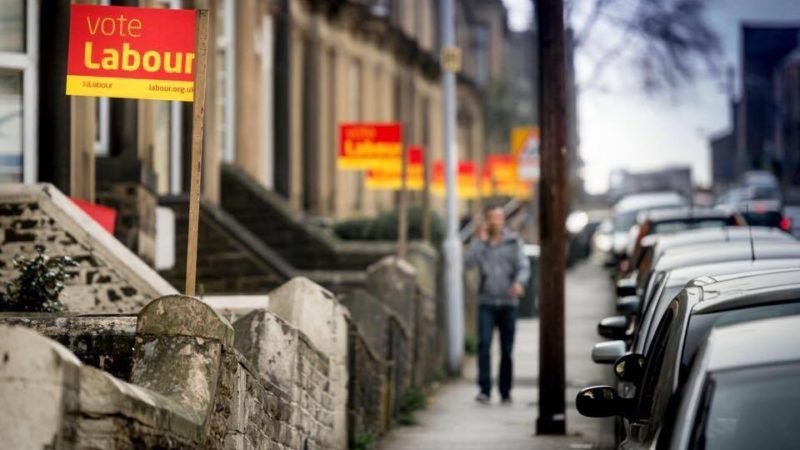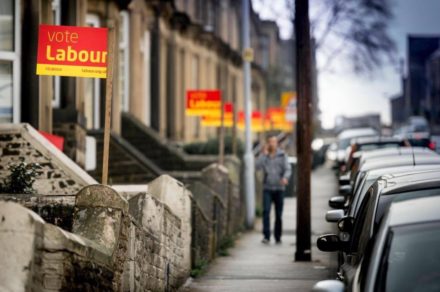

Labour and the radical middle class
The June 2017 election result produced a number of surprises, to say the least. Among them was Labour’s relatively strong showing among large number of highly-educated affluent voters, bringing seats like Canterbury within reach, even as some former mining towns went Tory.
Most of the analysis that has been offered for these outcomes in the mainstream press has been woefully simplistic. Much of it reduces the differences between groups of voters to mere differences of culture and psychological outlook. Such an approach simply ignores material questions – questions about whose interests are being represented, whose are being threatened, who has access to what kinds of information – altogether.
Much of it also completely ignores regional variations, in particular presenting “post-industrial Britain” as as if it were one homogenous bloc, as if the historic experience and political culture of south Wales and the west Midlands were interchangeable and identical. A somewhat more complex approach is required to give an accurate picture of the political sociology of the UK today.
The rise of the metropolitan left
The emergence of Corbynism in 2015 shocked the political establishment by revealing the existence of body of opinion in the UK which had been assumed to be far less widespread than it actually was (or at least to be confined to Glasgow, Liverpool and Hackney): a body of opinion which rejected both the neoliberal assumptions that New labour shared with the Tories, and the reactionary nationalism of UKIP.
Even once it became apparent that the left had returned to British politics as a significant political force, after an effective absence of 30 yearrs commentators and the Labour right consistently assured us that it could never win support outside of its metropolitan bases, and that if it retained the leadership of the Party then the electoral consequences could only be catastrophic.
This turned out to be utter nonsense (a fact about which some right-wing anti-Corbynites still seem unable to accept). A far bigger coalition of voters than expected turned out to be willing to follow the lead of the metropolitan Left, rejecting May’s little-England xenophobia. This coalition included both working class voters – especially the youngest and poorest – in all but the most conservative of the small post-industrial and costal towns; and, as already mentioned, a very high number of affluent middle-class voters.
The changing composition of the middle classes
The latter constituency is particularly worth noting, if only because so little attention has been paid to it. Jon Trickett himself remarked to me several years ago that he thought the changing culture and attitudes of the middle classes was a potentially factor in contemporary politics which had gone largely unanalysed in recent years.
This is an important observation.The commercial middles classes – Marx’s “petit bourgeoisie” – had once been regarded as the very bedrock of reaction in capitalism societies. They were seen as typically hostile to the Labour movement, contemptuous of the working class, deferential to both the aristocracy and the capitalist class above them, individualistic yet socially-conservative in their attitudes. They were the inheritors of a puritan tradition which made a virtue of ungenerous joylessness. Thatcher was the very incarnation of their values.
That may always have been a caricature, but it also summed up the apparent attitudes of a pretty solid block of English society for a rather long time. No doubt they still prevail amongst some constituencies, and account for a portion of the Leave vote in the 2016 referendum on EU membership. But the idea that such an outlook is in any way typical of middle-income voters has been inaccurate for several decades now.
The growth of a consumer society since the 1920s has been gradually shifting aspirations and expectations towards the embrace of a far more hedonistic outlook on life, with the pleasures of travel, consumption and entertainment becoming far more central to people’s lives. Despite the best efforts of the Tories, the public sector is more embedded in the lives of all but our wealthiest citizens now than it ever has been, such that even very affluent voters are routinely concerned to ensure that the NHS, the education system (including, more than ever, both university education and early-years provision), transport and social housing are accessible and well-funded.
At the same time the very concept of the middle-class has changed beyond recognition since the early 20th century. The professional classes – those working for relatively high salary in jobs requiring high levels of technical expertise – have been growing since the 18th century and have never had any natural affinity with the Tories.
The growth of the public sector and of a large population of relatives low-paid graduates has completely altered the material conditions, social as status and natural political allegiances of large sections of the professional classes. The “petit-bourgeoisie” of entrepreneurs, small-business owners and the self-employed shrank during the twentieth century but has grown significantly since the 1970s.
Today, however, its members are as likely to work in tech and new media as they are to be, say, traditional retailers; and they are as likely to share the metropolitan, cosmopolitan outlook of their professional peers as the conservatism of their older, counterparts. This is surely a key reason why so many of them – horrified by May’s appeal to an imagined working class conservatism – voted for Corbyn’s Labour in June 2017. At the same time, it is increasingly apparent that 40 years of neoliberalism has left the children of the middle classes without any obvious prospect of a secure future, affordable housing, accessible education or the opportunity to start families of their own.
Alternatives to neo-liberalism
Since the mid-1980s, the only political projects which have tried to recruit this new middle class were largely informed by neoliberal ideas. Thatcher offered to reward their entrepreneurial spirit. New Labour offered public sector reforms- such as the ‘choice’ agenda in schools – designed to appeal to them, if to almost nobody else. But it was always a reasonable proposition that a more radical politics could be made appealing to them under the right circumstances. The modern middle classes want high-quality healthcare and education as much as any of us do.
New Labour thought that the only form of decision-making that they were interested in was shopping, so it tried to make their experience as public service users as similar to that as possible. But today the middle classes are also used to the ubiquitous use of participative media and to flat, team-based management structures in the workplace. Wouldn’t plans to make the management of public services collective and democratic – shared by users, professionals and government – now be very likely to resonate with those experiences? This is an old demand of the New Left in the 60s and 70s, but it might be one whose time has finally come.
Jeremy Gilbert is professor of cultural and political theory at the University of East London and a member of the Compass management committee.




More from LabourList
Letters to the Editor – week ending 15th February 2026
‘Labour council candidates – it’s tough, but all is not lost’
‘Labour won’t stop the far right by changing leaders — only by proving what the left can deliver’